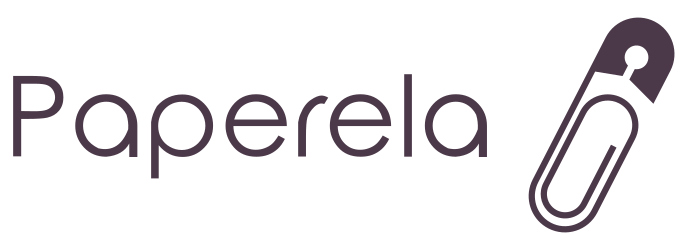
The Lucrative Business of Owning Rental Properties

Initially, purchasing a property just for renting it out may seem expensive, and it is. Still, over time, it will convert into a consistent stream of revenue around which you can plan your retirement and profitable business.
If you are still unsure, we have listed the following benefits that will help you make a cost-benefit analysis:
1. Appreciation in Property In Long Run

Andrii Yalanskyi/Shutterstock: Planning for the long run
Appreciation in the value of estate provides some of the best returns, beating out even S&P 500 and most Wall Street investments. While we are not suggesting a ‘fix & flip’ strategy, we do suggest holding your properties at least till seven to ten years to maximize your Return on Investment (ROI). As per a study, during the recent 50 years, appreciation in real estate value has been averaging 6.8%.
We realize that other crucial factors are also dependent on the appreciation of value in properties. Still, the average is something to be kept in mind. It should not be discarded while evaluating this line of business.
2. Reduction in Mortgages

Andrii Yalanskyi/Shutterstock: Benefitting through mortgage reduction
Often overlooked, this particular point provides dual benefits. If the purchase decision has been made wisely, the estate will generate enough cash to break-even by rental income because the tenants are essentially paying the loan on your behalf.
Reduction in the mortgage also doubles up as a tax-free benefit, and should also be taken into account when calculating ROI, among other things.
3. Savings in Tax & Other Deductions

lovelyday12/Shutterstock: Exploring new saving opportunities
On the face of it, rental properties look like they bleed money. Although, with the help of depreciation, tax-deductible mortgage (which the renter is paying for you!), and other deductions like property taxes, repairs, maintenance, travel, supplies, HOA fees, telephone expenses, etc., the advantages stack up quickly!
One important thing to note here is how you are categorized in the eyes of the IRS. If you do not take appropriate steps to classify yourself on your tax return and IRS may automatically classify your income as passive, active, or portfolio income. Understand the basics:
- Passive Income – Anyone can avail of this option, but losses are only deductible against other passive income.
- Active Income – Claiming losses are limited annually to $25,000 and finish completely at $150,000 of adjusted gross income (AGI). Also, to qualify, certain decisions need to be made between buying and selling property, or whether to hire a property manager. Just make sure you tick the right box in your tax form.
- Portfolio Income – All real estate related losses and expenses are fully deductible against any type of income. To meet the criteria, you must have spent 750+ hours working in the business, and your primary occupation should be real estate. Also, you should be actively involved in managing the properties.
In case of any doubts, feel free to contact your CPA as these decisions have long-term effects. One thing to keep in mind is that you may not be able to deduct the losses immediately, but the tax benefits are remarkable.
4. Cash flows
Cash flow is most important in ROI analysis. Consider all your expenses made in cash against income to evaluate a cash-to-cash return. It can also be done when you try to minimize the costs concerning your real-estate business.
To conclude, the right property will generate generous cash flow, so choose wisely. It also protects you against any economic fluctuations or a sudden drop in real-estate value.
To sum up, smart people recognize these benefits and work cleverly to yield tangible benefits. If your ROI calculations are fool-proof, you may be able to generate returns in triple digits. Many wealthy people in the world give credit to the rental business for a considerable chunk of their income. So, what are you waiting for? Give your CPA something to work on!
More in Legal Advice
-
`
What Chiropractic Services or Products Are Taxable in the U.S.?
When considering sales taxes that come with chiropractors charge, it is important to understand that the rules vary widely by state....
September 13, 2024 -
`
How to Prevent Squatters While on Vacation?
Going on vacation should be a time of relaxation and adventure, not a cause for concern about what is happening back...
September 6, 2024 -
`
Ben Affleck and JLO Divorce – Why He Won’t Remove His Ring?
Given their status as Hollywood’s power couple, Ben Affleck and Jennifer Lopez’s relationship status continues to captivate public interest. Recent reports reveal...
August 26, 2024 -
`
Why Is My Gas Bill So High in the Winter? Top Reasons You Need to Know
Why is my gas bill so high in the winter? High gas bills arise when the temperature drops, and households begin...
August 23, 2024 -
`
How to Start a Taxi Business With One Car – And Be Profitable
The online taxi booking app industry is a goldmine in today’s market. It offers unmatched convenience for commuters, lucrative opportunities for...
August 16, 2024 -
`
Can You Go to Jail for Driving Without a License? Find Out Now
Driving is an essential part of daily life for many people, but it comes with responsibilities. One of the most fundamental...
August 9, 2024 -
`
Top 5 Richest “American Idol” Winners
“American Idol” has been a launching pad for many aspiring singers since its debut in 2002. The show has produced some...
July 29, 2024 -
`
Can Banks Notarize Documents for Free?
Navigating the landscape of legal documents can often lead you to one crucial service: notarization. Understanding whether you can access these...
July 23, 2024 -
`
5 Tried & Trusted Ways to Get Quality Property Clients
Wondering how to get property management clients? In today’s competitive market, securing high-quality property management clients can be a challenge. But...
July 17, 2024















You must be logged in to post a comment Login